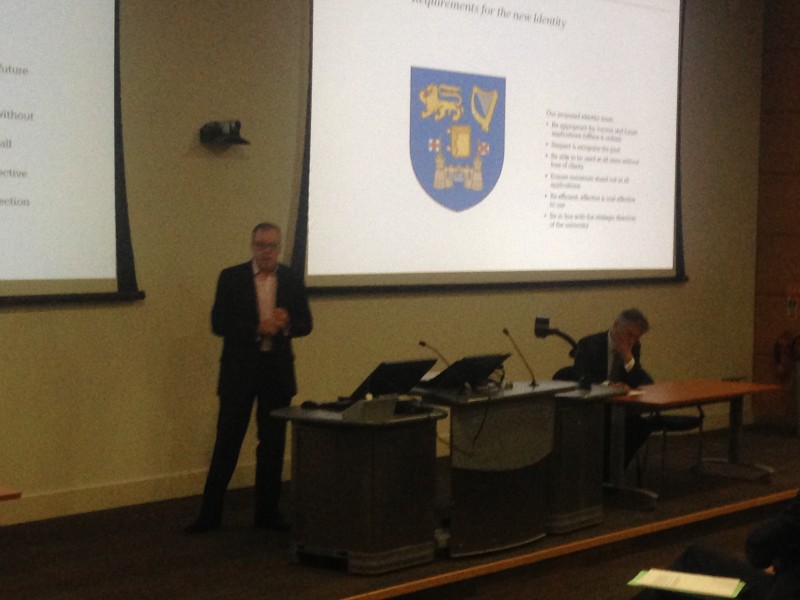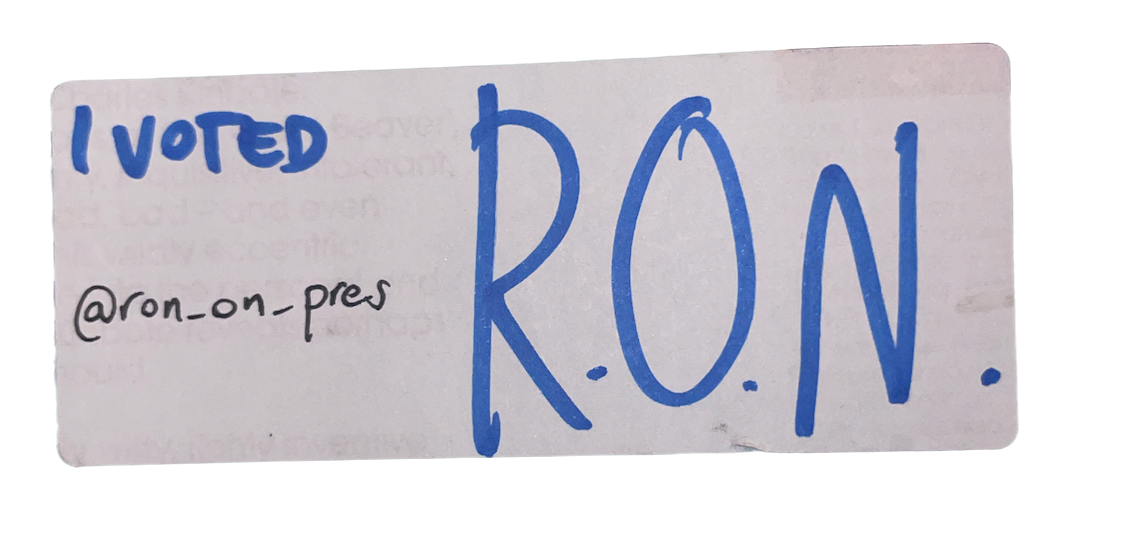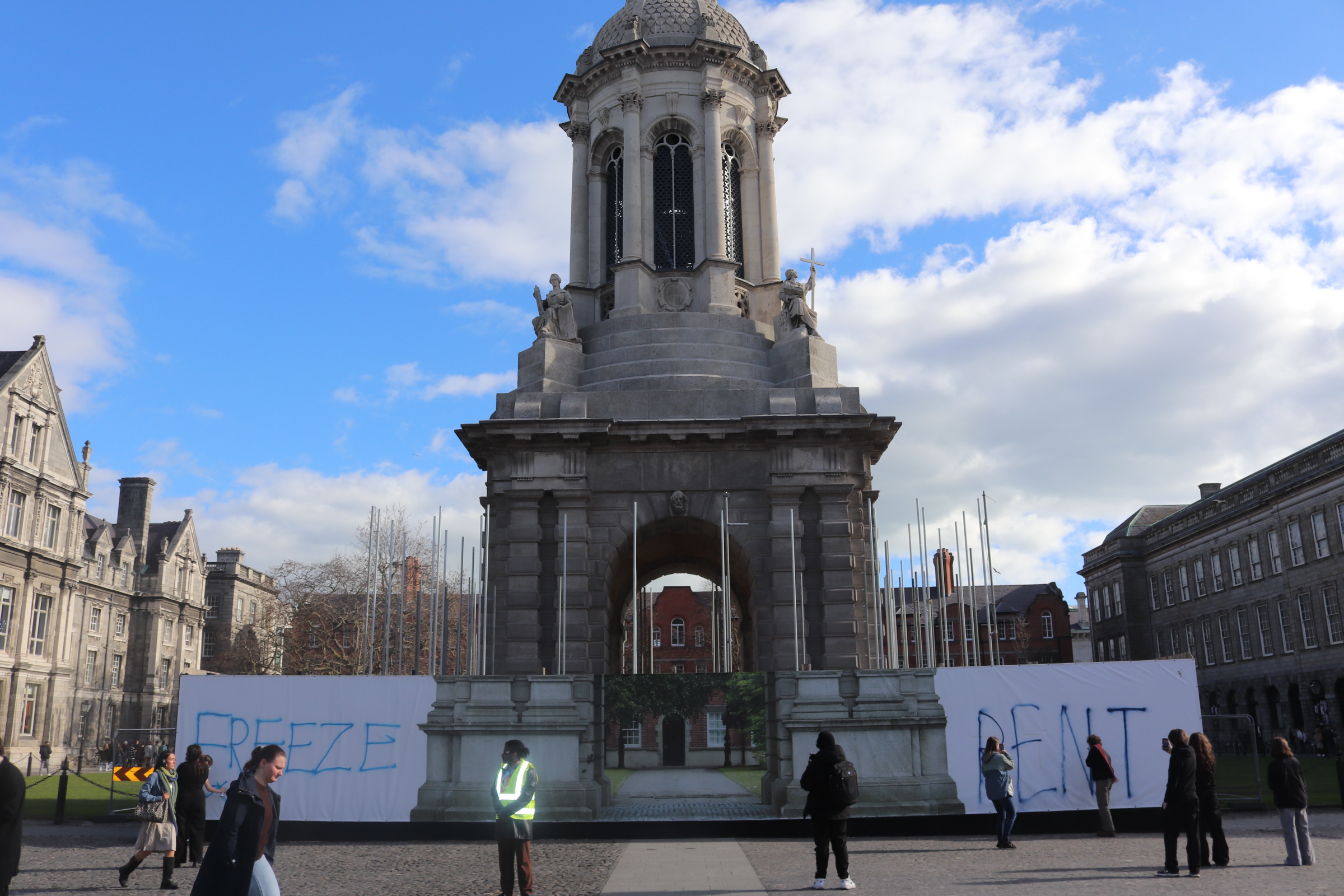Leanna Byrne | Editor
Students and staff of Trinity College Dublin voiced a number of their concerns in relation to the proposed new logotype that has been given preliminary approval at the College Board at a Town Hall Meeting held today in the Stanley Quek Lecture Theatre.
Among the main concerns that were addressed the college community had an issue with the modernised crest, with many saying it was ‘toy-like’ in shape and size, and the usage of ‘Trinity College, the University of Dublin’.
The Town Hall meeting was held in order to get the views of the Trinity community to dispel the inaccuracies surrounding the re-branding exercise in the media and also to get the final approval before the decision on the new logotype is put to the College Board.
According to the Provost, Patrick Prendergast, the re-branding is a necessary step for the globalisation of the university, to create a “strong and memorable image” and to make the logo more accessible for use online. Furthermore, he believes that it is important that we reclaim the title “the University of Dublin” as this was not obvious from online searches or amongst the general public.
David Riddle from design and branding agency Huguenot presented the process behind the new design. He claimed that Trinity’s current logo is “suffering because of its dated design” and that proposal is changing the logo “for the right reasons in the right way”.
Many students and staff did not agree with many of the elements of the new design. Dr Brian Lucey from the School of Business said that by changing the coat of arms we were “losing some subtle edge of history”. He went on to argue that half of the top 50 universities in the university rankings do not use university in their name and that “we already have a brand in Trinity College Dublin”. However, Prof. Jane Ohlmeyer did not agree that Trinity is known as widely as the audience suggested and also outlined the difficulties using the term ‘college’ when promoting the university in international markets such as Asia.
Others attending echoed the sentiments of Dr Lucey by saying that the change proposed was not worth the cost, that it devalued our heritage and that there was a “lack of consideration for the history of the university” during the process.
When asked whether or not there would be another Town Hall after the comments and suggestions from the college community were quantified and added to the process would be conducted the Provost said that they had always planned to consult students and staff but there would not be another meeting. In addition, he said that he will continue to meet with groups, however “Board is the final decider, not a Town Hall”.
The decision to undergo a re-branding exercise was commissioned in the last College Strategic Plan approved by the College Board and the new logo is set to be decided on at a College Board meeting later this academic year.







